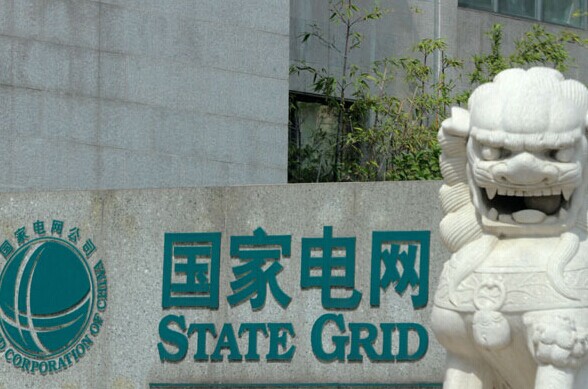

One of State Grid Corp of China's offices in Jiangsu province. At the end of April, the company's grid-connected capacity of distributed power had reached 1.28 million kilowatts, among which distributed solar power accounted for 1.21 million kW, according to the company. Provided to China Daily
The State Grid Corp of China, the nation's largest utility by sales, said on Tuesday it plans to seek private capital investment to establish a distributed power network and charging stations for electric vehicles. It's a step toward mixed ownership in State-monopolized industries.
But experts said the decision is less encouraging when compared with the other two giant State-owned energy companies-China Petrochemical Corp, known as Sinopec, and PetroChina Co Ltd, which opened assets for private investors in January.
State Grid representative Wang Yanfang said the company supports private capital to invest in distributed power generation connection projects, as it will develop the industry.
At the end of April, the company's grid-connected capacity of distributed power had reached 1.28 million kilowatts, among which distributed solar power accounted for 1.21 million kW, according to the company.
In contrast to Sinopec and PetroChina, the State Grid has not sold any assets to private investors. It's more a gesture of support, said Lin Boqiang, director of the China Center for Energy Economic Research at Xiamen University.
He said the scale of distributed power grid connection projects is small and the profit potential is vague.
A power analyst with a domestic industrial consultancy who declined to be named said it is not attractive to private investors because of the high cost of building of distributed power plant grids and low profitability.
"In China, the distance of each distributed power plant is long, which leads to high costs on power transmission," the analyst said. "It just sounds not worthwhile. Meanwhile, the distributed power industry is at an initial stage in China, and the electricity supply is not stable."
In terms of charging stations for electric vehicles, Wang Xiaokun, an analyst at domestic commodities consultancy Sublime China Information Co Ltd, said some manufacturers might be interested in cooperating with the State Grid.
China's government has encouraged the use of electric vehicles as a way to reduce pollution.
According to the China Association of Automobile Manufacturers, about 14,000 electric cars and 3,300 plug-in hybrids were sold in 2013.
The government aims at reaching 500,000 plug-in hybrid and electric vehicles by next year.
Tesla Motors Inc has been working with some Chinese companies to build charging stations, the US company's founder Elon Musk said on a recent visit to China.
The government continues to open up State-owned enterprises to private investment. Sinopec announced in February it will sell up to 30 percent of its retail oil business to private investors.
PetroChina this month said it will sell 100 percent of its pipeline assets valued at $6.3 billion to private investors.
The assets include the First and Second West-East Gas Pipelines, which carry natural gas from central Asian countries and China's energy-rich region of Xinjiang to the nation's eastern cities.
State Grid solicits social capital
2014-05-28Projects open to private capital
2014-04-24China to allow private capital into more state projects
2014-03-05Sinopec allows private capital in sales business
2014-02-20China allows more private capital in telecoms
2014-01-30Premier‘s visits highlight role of private capital
2014-01-28Copyright ©1999-2018
Chinanews.com. All rights reserved.
Reproduction in whole or in part without permission is prohibited.